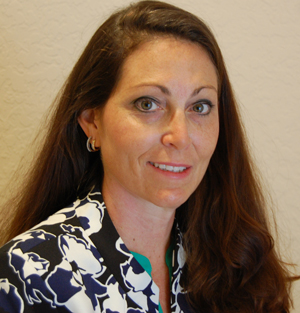OLG LEGAL COMMENTARY:
Attorney Christina Miner

My grandparents, you see, were in a horrific car accident in 1994 in South Florida. My grandmother was killed on-scene. My grandfather was declared brain-dead.
They had four kids, my mother being the oldest one. When they all went to Miami, they learned that my grandfather did not have a living will, or any documentation that said what he would want if ever in such a life-threatening position. So, as such, it was left to the four children to decide.
After discussions, they agreed that my mother would make the final decision as to what to do with my grandfather. And after speaking with all doctors, and seeing that there was no possibility whatsoever for him to survive, my mother made the difficult decision to take him off life support.
And then, after he died, one of her siblings said that — had it had been left up to them — they never would have done that. That sibling blamed my mother for killing my grandfather.
More than 20 years later, there is still a rift in our family that was caused by that decision. Yet if he had a Living Will, then he would have been able to have made the decision himself, while alive. And that is what I tell people – that YOU are making the decision as to what happens to you. And in doing so, you are not putting that on anybody else. All you are doing is telling people to carry out your decision that you have already made, should that ever happen to you.
I share that story because, unfortunately, most people tend to wait too long before they consider officially filing the appropriate documentation with regard to Living Wills, Trusts, and Estate Planning. So many of us wait, not thinking that tragedy will strike, and then when it does, we are legally all for the worse.
It is not just the average citizen, though, that acts – and/or reacts – that way. It is the rich and famous, too.
Aretha Franklin’s family will most likely be finding that out now themselves.
The legendary singer, who passed away last week from a battle with pancreatic cancer at the age of 76, had no will or trust at the time of her death.
According to her attorney, in a report in the Detroit Free Press, Franklin just “never got around to it.”
Due to that inaction, Franklin’s family might potentially have a long legal road ahead of them – similar to when Ike Turner passed away. He, too, did not have a will, and his estate has been in litigation for 11-plus years.
With regard to Aretha Franklin, the laws in Michigan say that her estate is supposed to go to her children. But since she did not have a specific will or trust, other relatives can technically come in and try to get something from her estate. By not having a Will in place, it opens the door for other people to come in and argue that they should have a piece of the pie. They can go potentially go to court and argue that they have an interest and deserve a cut of the estate.
The cost to do so, though, is not just time. Many dollars are uselessly spent by families on attorney and other legal fees, in order to contest the estate and go through litigation matters. Depending on how much time respective attorneys need to put into various matters, it can cost thousands of dollars each year for families to go through the process. And how do those fees get paid? By monies held in the estate. Thus, the estate value lowers with each dollar spent on those fees.
Throughout my career, I have seen too many examples of families arguing over what many would perceive as petty issues. I have heard of family members feeling like they deserved more money than was left for them, so they spent thousands and thousands of dollars on challenging the Will, with the case still being in court. I have seen families arguing with one another about estates that had nary a dollar in it. And I have seen heartbreaking cases where a young loved one passes away, and estranged family members receive monies that other family members feel that they do not deserve.
And virtually all of this – be it with regard to the families listed above, your family, or even Aretha Franklin’s family potentially — could be prevented by simply finding the 30 minutes to visit with an attorney and fill out the proper Wills, Living Wills, and/or Trust documents.
As for my respective family?
Well, after both grandparents died in that crash, almost my whole entire family got Living Wills.
And as for me? It helped lead me here, to help you with yours.
Christina Miner is a Wills and Estate Planning Attorney with The Orlando Law Group. Her practice focuses on estate planning, guardianship, probate and trust administration. She has worked for private law firms, was assistant regional counsel for the Office of Criminal Conflict and Civil Regional Counsel – 5th District, and was senior attorney for the Florida Department of Children and Families. She earned her Juris Doctorate from FAMU College of Law, and earned her bachelor’s and master’s from the University of Central Florida.
To contact Christina, visit www.TheOrlandoLawGroup.com or call (407) 512-4394.
Members of the media wishing to contact Christina or any other OLG attorney should call 20 A-M COMMUNICATIONS at (407) 917-20AM (2026).
Last Updated on August 24, 2018 by The Orlando Law Group






